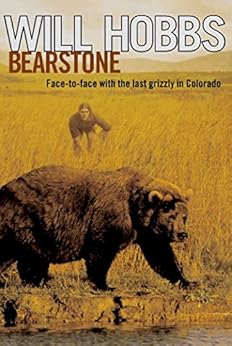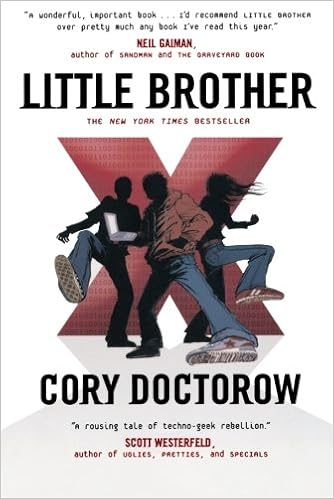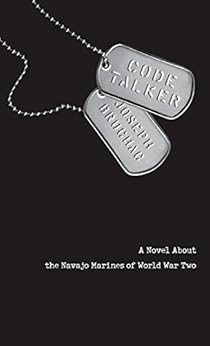As far as the writing goes, I've been inconsistent with the blog. I'm going to work on stepping that up and adding my creative writing time in which so far practically hasn't happened at all.
YA Literature (15,912 total pages)
- Yummy: The Last Days of a Southside Shorty by G. Neri (1/1/2017) - 96 pages
- El Deafo by Cece Bell (1/1/2017) -248 pages
- The Graveyard Book by Neil Gaiman (1/2/2017) -320 pages
- The Book Thief by Markus Zusak (1/6/2017) -550 pages
- Code Orange by Caroline B. Cooney (1/12/2017) - 195 pages
- The One and Only Ivan by Katherine Applegate (1/14/2017) - 304 pages
- *Crewel by Gennifer Albin (1/15/2017) - 353 pages
- Clementine by Sara Pennypacker (1/21/2017) -136 pages
- On the Devil's Court by Carl Deuker (1/22/2017) - 201 pages
- *All-American Boys by Jason Reynolds & Brendan Kiely (1/26/2017)- 315 pages
- *Altered by Gennifer Albin (1/27/2017) - 387 pages
- *Unraveled by Gennifer Albin (1/28/2017) -288 Pages
- Tangerine by Edward Bloor (2/8/2017) - 303 pages
- Drowned City: Hurricane Katrina & New Orleans by Don Brown* (GN) (2/13/2017) - 93 pages
- City of Bones by Cassandra Clare (2/19/2017) -485 pages
- The Letter, the Witch, and the Ring by John Bellairs (2/18/2017) - 188 pages
- City of Ashes by Cassandra Clare (3/1/2017) - 453 pages
- City of Glass by Cassandra Clare (3/3/2017) - 541 pages
- City of Fallen Angels by Cassandra Clare (3/4/2017) - 424 pages
- *City of Lost Souls by Cassandra Clare (3/8/2017) - 533 pages
- Masterpiece by Elise Broach (3/9/2017) - 288 pages
- The Westing Game by Ellen Raskin (3/22/2017) - 182 pages
- Clockwork Angel by Cassandra Clare (3/25/2017) - 476 pages
- Clockwork Prince by Cassandra Clare (3/27/2017) - 502 pages
- *Clockwork Princess by Cassandra Clare (3/28/2017) - 568 pages
- The Maze Runner by James Dashner (4/25/2017) - 384 pages
- The Scorch Trials by James Dashner (5/3/2017) - 362 pages
- The Death Cure by James Dashner (5/5.2017) - 325 pages
- Mister Monday by Garth Nix (5/8/2017) - 384 pages
- Grim Tuesday by Garth Nix (5/8/2017) - 336 pages
- Drowned Wednesday by Garth Nix (5/15/2017) - 389 pages
- Sir Thursday by Garth Nix (5/23/2017) - 344 pages
- Lady Friday by Garth Nix (5/27/2017) - 320 pages
- Superior Saturday by Garth Nix (5/29/2017) - 336 pages
- Lord Sunday by Garth Nix (5/30/2017) - 320 pages
- Hope was Here by Joan Bauer (5/30/2017) - 186 pages
- Don't You Dare Read This, Mrs Dunphrey by Margaret Peterson Haddix (5/31/2017) - 128 pages
- Code Talker by Joseph Bruchac (6/1/2017) -224 pages
- Looking For Alaska by John Green (6/2/2017) - 221 pages
- Whip It by Shauna Cross (6/5/2017) - 234 pages
- How to Train Your Dragon: Book 1 (Special Collector's Edition with Brand-New Short Stories) by Cressida Cowell (6/8/2017) - 407 pages
- Little Brother by Cory Doctorow (6/9/2017) - 382 pages
- Under the Blood-Red Sun by Graham Salisbury (6/12/2017) - 246 pages
- The Fall by Garth Nix (6/15/2017) - 208 pages
- Castle by Garth Nix (6/16/2017) - 224 pages
- Aenir by Garth Nix (6/16/2017) - 240 pages
- Above the Veil by Garth Nix (6/17/2017) - 256 pages
- Into Battle by Garth Nix (6/18/2017) - 208 pages
- The Dot and the Line: A Romance in Lower Mathematics by Norman Juster (6/18/2017) - 80 pages
- The Violet Keystone by Garth Nix (6/18/2017) - 233 pages
- Bearstone by Will Hobbs (6/24/2017) - 154 pages
- Spud by John van de Ruit (6/30/2017) - 352 pages
- Confessions of a High School Word Nerd edited by Arianne Cohen & Colleen Kinder (1/3/2017) -168 pages
- The Case Against Tomorrow by Frederik Pohl (3/20/2017) - 150 pages
- Across the Wall by Garth Nix (3/30/2017) - 305 pages
- To Hold the Bridge by Garth Nix (4/7/2017) - 432 pages
- Twelve Impossible things Before Breakfast by Jane Yolen (6/20/2017) - 175 pages
- Bad Monkeys by Matt Ruff (1/4/2017) -227 pages
- Witches Abroad by Terry Pratchett (1/21/2017) - 350 pages
- Small Gods by Terry Pratchett (1/25/2017) -386 pages
- Animal Man by Grant Morrison (GN)
- Volume 1 (1/29/2017) - 240 pages
- Volume 2: Origin of the Species (1/30/2017) - 224 pages
- Volume 3: Deus ex Machina (1/30/2017) - 232 pages
- Sabriel by Garth Nix (2/12/2017) - 491 pages
- Lirael by Garth Nix (2/27/2017) - 488 pages
- Abhorsen by Garth Nix (3/11/2017) - 358 pages
- Lords and Ladies by Terry Pratchett (3/13/2017) - 373 pages
- *Clariel by Garth Nix (3/15/2017) - 382 pages
- *Goldenhand by Garth Nix (3/18/2017) - 344 pages
- Marvels by Kurt Busiek (GN 4/7/2017) - 216 pages
- Kick-Ass #1 by Mark Millar (GN 4/8/2017) - 216 pages
- Strong Poison by Dorothy L. Sayers (4/17/2017) - 240 pages
- Men at Arms by Terry Pratchett (6/4/2017) - 377 pages
- Soul Music by Terry Pratchett (6/24/2017) - 373 pages
Poetry/Novel in Verse (719 pages)
- A Light in the Attic by Shel Silverstein (2/13/2017) - 169 pages
- Above the Dreamless Dead edited by Chris Duffy (6/4/2017) - 144 pages
- The Surrender Tree: Poems of Cuba's Struggle for Freedom (6/19/2017) -169 pages
- The Crossover by Kwame Alexander (6/25/2017) - 237 pages
Professional and Nonfiction (140 total pages)
- A Mathematician's Lament by Paul Lockhart (6/6/2017) - 140 pages











